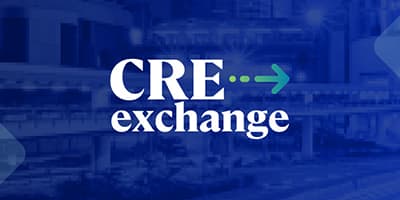Market uncertainty spurs debt funds and other CRE lenders to prioritize collateral value updates

Key highlights
With so much uncertainty in the post-pandemic market, organizations must gain clear visibility into their commercial real estate portfolio to fully evaluate risks – and take appropriate action – in a manner consistent with industry best practices
Market volatility, rapidly rising interest rates, and declining asset values spotlight the need for greater scrutiny and risk management pertaining to collateral valuation processes
Many organizations are faced with resourcing constraints, and may need to seek the support of an external valuation management provider to better mitigate financial risk and provide greater reassurance to investors and shareholders
In today’s climate, valuation management firms must be willing to consult with a range of internal stakeholders to understand key concerns and challenges, and offer insights related to assumptions and overall conclusions for a range of property types and markets.
With investors and lenders on high alert during this period of market volatility, those organizations which embrace best practices to strengthen risk management processes are most likely to survive and grow
Commercial real estate investors are understandably nervous.
Post-pandemic, some of the worst-impacted segments of the commercial real estate (CRE) sector, such as lodging and retail, have been slowly recuperating. But at the same time, central banks have started hiking interest rates, subsequently tightening financial conditions. This shift has contributed to a depreciation in values for all property types, but most notably within office.
With so much uncertainty in the market, debt funds and other lenders providing CRE financing must gain visibility into the factors impacting the value of the real estate collateral underlying your book of loans. Are the steps you are taking to evaluate your risks consistent with industry best practices? Are you able to assure investors and shareholders that you have fully evaluated the risks and are taking the appropriate action where necessary? These questions have become pressing in light of recent market developments.
Recently, two major loan failures have demonstrated the seriousness of the shifting landscape. At the end of 2022, a subsidiary of Brookfield Corp. defaulted on loans totaling $755 million related to two office buildings in Los Angeles. Similarly, Vornado Realty Trust's Fifth Avenue and Times Square joint venture defaulted on a loan of $450 million connected to the retail property in New York City.
More recently, a director of the Federal Reserve Bank of New York announced that US$1.5 trillion in commercial real estate debt will mature during the coming three years. Most of this debt originated when interest rates were close to 0%.
In the past, most CRE lenders valued collateral at the time of origination and rarely afterward. In some instances, valuations might have been updated as part of an extension or modification within the loan process, or if there was significant concern with performance or the business plan. But regular collateral valuations were rarely considered necessary. Typically, valuation policies related to collateral have been structured to be reactive, rather than proactive.
Until now.
Market volatility, rapidly rising interest rates, and declining asset values highlight the need for greater scrutiny and risk management.
Given the likelihood of significant risk within real estate debt portfolios, commercial real estate lenders need to assume a proactive stance. This is a critical time to reevaluate your existing collateral valuation process or to develop a new process that addresses current circumstances and challenges.
Given that resourcing can be challenging for some lenders such as debt funds whose core competencies are raising and deploying capital rather than valuing assets, partnering with an external valuation management provider can support your team with experience and expertise. An objective provider can offer recommendations regarding timing and approaches based on what is most appropriate for your fund as well as industry best practices. With this in mind, regular refreshing of collateral valuations should now be an integral part of your process to mitigate financial risk and provide greater reassurance to investors and shareholders.
Read on to learn why and, more importantly, how.
"Timely collateral valuations are now essential to protect your brand and your credibility with clients."
Changing pricing and cash flow assumptions are significantly impacting values
While origination collateral appraisals for your portfolio or fund may have been completed in the past few years, volatile demand and elevated interest rates are recalibrating both pricing and underlying cash flow assumptions for many property types. These changes are impacting values, sometimes dramatically, as in the case of office properties.
While concerns related to mezzanine debt for hotel investments wiped out during COVID may now seem like a distant memory, sustained, heightened interest rates are lowering asset values across the board.
Investors are acutely aware of valuation volatility. They view the collateral basis as the risk. This is where they are currently focused, and will continue to be, for the foreseeable future.
How are your auditors, investors and shareholders reacting? Are they requesting more transparency into the collateral valuation process? Are they inquiring about your risk management policy? A valuation policy for collateral? How do your practices compare with those of other CRE lenders?
Moreover, how is your organization responding? Do you fully understand the risks in your portfolio? Do you have a current perspective on its collateral values? What might the situation look like if covenant testing is missed for loans that are nearing maturity, or if you can't refinance? As a means for taking appropriate action and providing transparency to investors and shareholders, it is especially imperative for lenders with commercial real estate balance sheet risk to conduct timely valuations of collateral to understand structural risks.
Lessons from the Great Financial Crisis
Those firms engaged in alternative lending and debt funding that survived the Great Financial Crisis of 2008/09 protected their principal commitments. To accomplish this, they gained a full understanding of their collateral basis and wielded pre-emptive strategies to maintain commitments.
Since that time, the CRE industry has had a massive inflow of new alternative lenders; however, many of those lenders have never experienced a period of financial turbulence such as we are now encountering. Not only that, but many have not developed robust practices for monitoring and valuing collateral, which is crucial during such periods.
In situations where internal teams may be unable to assume additional work, third-party valuation management support can help to establish timely, efficient processes that support management decision-making and investor communications.
"Providing debt is challenging but temporary. Basis is forever. At the end of day, the risk is the collateral. For our clients, conversations continue to move away from market spreads and are now more acutely focused on collateral: “What's the basis worth?"
Best practices focus on the value of collateral
While robust periodic collateral valuations are a recent advancement in the lending community and best practices are ever evolving, three strategies are key.
Immediate triage
Internal or external valuation teams should begin by identifying the most urgent risks in portfolios. This involves focusing, from a lender perspective, on both at-risk collateral as well as performing collateral that is potentially problematic in light of operational and capital market conditions.
Stress testing should include adjusting collateral cash flows on the downside and determining how that would impact loan covenants, the loan-to-value ratios and the ability to recover the original loan amount.
Annual review
Once immediate risks have been addressed, an annual review of a larger subset of the portfolio yields a deeper understanding of the impact of real estate volatility on collateral and can help to minimize potential risk of non-performing loans.
Best practices
Moving forward, there should be a determination of best practices for valuation frequency and processes. As with all valuations, these practices must facilitate transparency and accountability of procedures and comparability of results.
This requires determination of the purpose, scope and valuation methods utilized when integrating and scaling, communicating, and finally, reviewing the process. To ensure an actionable approach, the valuation director, a representative of the asset management team, and the Chief Risk Officer or Chief Operating Officer should be involved in developing best practices for the portfolio or fund.
In an effort to fortify your best practices with additional support, you may wish to outsource valuation management completely or partially. This could range from assistance with process recommendations, to the completion of appraisal reports, or the third-party review of draft valuations. Whatever level of support you seek, ensure the firm you select has solid expertise in debt and collateral valuation.
Additionally, this provider should be willing to consult with a range of internal stakeholders to understand key concerns and challenges. To support accurate collateral valuations, they should also be able to offer insights related to assumptions and overall conclusions for a range of property types and markets. In today's climate especially, it's important to align with professionals who have a thorough understanding of valuation trends, industry best practices, benchmarking, and their impact and value.
"Given overall capital market trends and shifting assumptions impacting collateral values, lenders relying on potentially stale origination collateral appraisals should consider a refresh on those valuations."
Defensive posture protects credibility and competitiveness
The disruption caused by the pandemic, combined with the rapid interest rate rise that has followed, has cultivated a new risk paradigm. This is proving to be a catalyst for change across the industry, and timely valuations are the first step towards successfully navigating this new landscape.
With growing demand for lenders to anticipate potential problems, proactive collateral valuation practices have become a competitive advantage – or disadvantage for those lenders who choose to ignore this expectation.
During this period of market dislocation, uncertainty and falling asset values where investors are on high alert, embrace best practices and strengthen your processes as they relate to risk.
Funds and other lenders that are pre-emptive and disciplined, that act quickly to address gaps in valuation policy and communicate with transparency to investors and shareholders are those which will survive and grow well into the future. Now more than ever, the ongoing demonstration of judicious best practices relating to an organization's commercial real estate portfolio is the ultimate indicator of success.
"From a collateral deterioration perspective, it may be up to five years before we are on the other side of this. So lenders that want to establish a defensive posture for their portfolios would be prudent to start instituting practices that identify at-risk collateral today to avoid potential future concerns."
Authors

Tim Kuhn
Director

Andrew Pabon
Director Global Advisory
Authors

Tim Kuhn
Director

Andrew Pabon
Director Global Advisory






